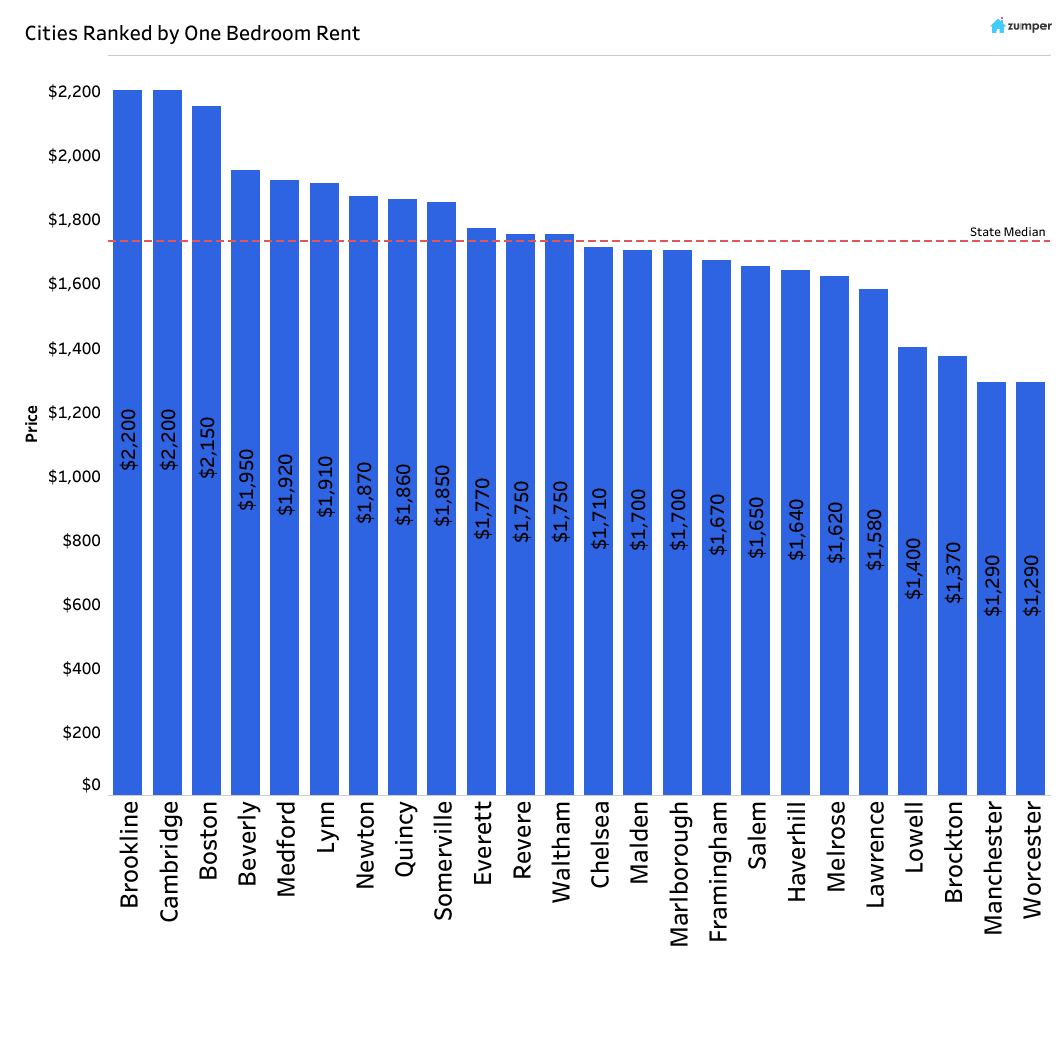A new report shows that the rent of a median Lynn one-bedroom apartment jumped 15.1 percent in 2020, making Lynn the sixth most expensive city for housing in the Boston Metro area.
The report, from the apartment listing site Zumper, analyzed active listings that hit the market in December 2020, which were then aggregated by city to calculate median asking rents, and compared to data from the previous year.
Lynn’s 15.1 percent jump was among the largest of the 20 cities surveyed, second only to Brockton, who’s rents skyrocketed 19.1 percent.
According to the report, the city’s median rent was $1,910 — $180 greater than the $1,730 median rent statewide.
“It’s high but it’s not shocking,” said City Planner Aaron Clausen of the increase. “What we’re seeing in Lynn are really significant increases on rental properties and homes.”
He added that census data showed that rents had increased 25 percent cumulatively over the previous three years.
He speculated that the jump was a result of market forces, a “depiction of the lack of supply with the demand that’s there,” and that it might have been skewed by the recent opening of the luxury Caldwell Apartments development on Monroe Street.
Lynn trails only Brookline, Cambridge, Boston, Beverly and Medford in one bedroom rent, and is more expensive than several other North Shore cities, including Revere and Salem, the study found.
The study also analyzed month-to-month rent comparisons showing that Lynn’s rent had decreased slightly (0.5 percent) from November to December.
Salem recorded the largest month-to-month decrease in rents, with a 5.2 percent dropoff, though their rents had increased 3 percent annually.
The most affordable city, according to the study, was Worcester, with an average one bedroom rent of $1,290, followed by Manchester, Brockton, Lowell and Lawrence.
The price of a two bedroom apartment in Lynn also increased, though not as dramatically — up 9.3 percent from the previous year to $2,000.
Clausen advocated for “Housing Lynn: A Plan for Inclusive Growth” as a means of addressing the increasing rents in Lynn.
The plan, developed by the city, Lynn Housing Authority & Neighborhood Development (LHAND) and the Metropolitan Area Planning Council (MAPC), includes a commitment to guide new development to include deed-restricted affordable housing at a rate of 15 percent of new units for the next five years.
It also outlines five recommendations centered around potential zoning and development changes, the use of city resources, tenant protections, municipal culture improvement, and housing preservation, according to the document.
“The plan articulates a pretty robust approach for the community to address housing needs,” said Clausen.
A period of public comment on the plan has recently been extended through Jan. 28, and residents can email [email protected] to provide input.

